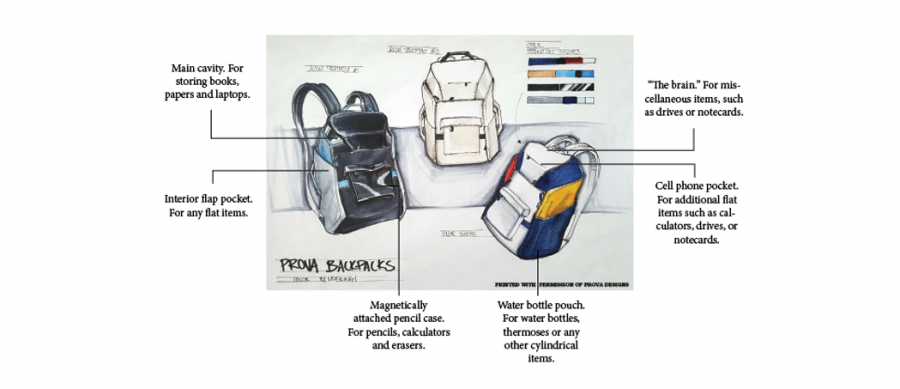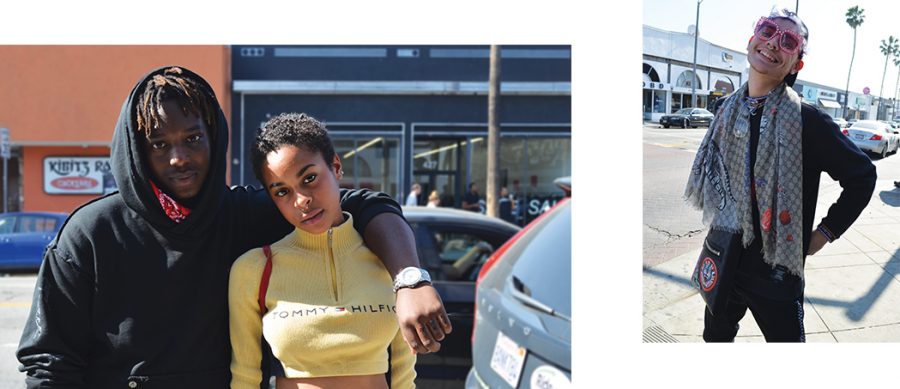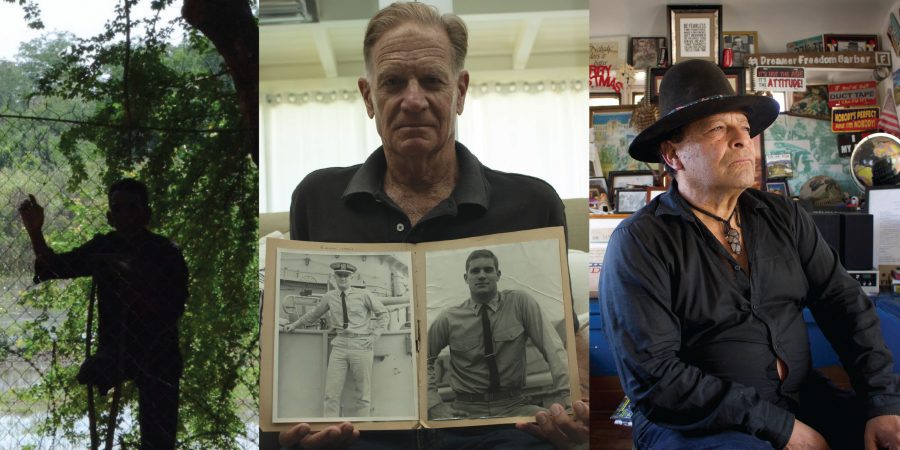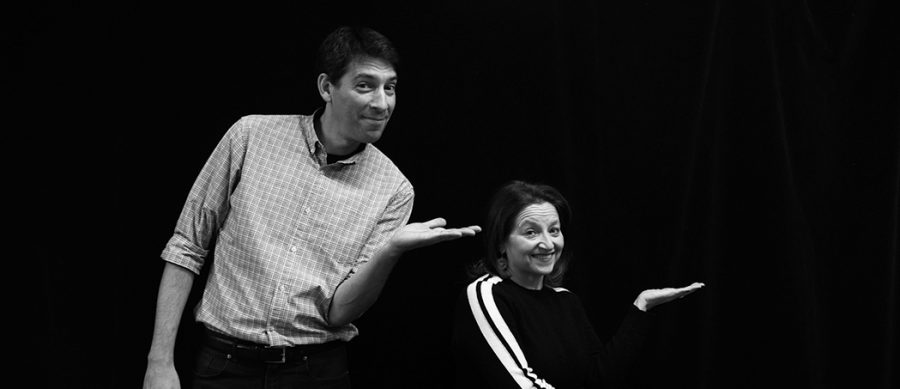Standing in the Tuff warehouse in San Diego, Jonathan Damico ’18 and Cameron Schiller ’18 looked at the first prototype of the backpack that had once been just an idea they had dreamed of. As they stared at the backpack they had seen drawn hundreds of times, the white “Mk 1” writing stitched into the top stood out. Although Damico knew they still had a long way to go, he said it was one of the proudest moments of the whole experience.
“My favorite moment was seeing the first prototype in person,” Damico said. “It felt fantastic to hold the physical result of countless hours of work and was a strong symbol of how far the once-little project had come.”
Around eight months ago, Schiller and Damico started their company, named Prova, hoping to gain business experience and create a product that would make a difference. They settled on backpacks.
“We both knew we wanted to do something impactful,” Damico said. “We both knew we wanted to do something outside of the scope of what we were doing in school and we just started to look for inefficiencies with products that we use every day that don’t quite cut it. Both of us looked toward backpacks as something that were in need of improvement.”
While there are many high-end backpacks available, there are few premium options designed specifically for students, Schiller said.
“We decided to think of a whole bunch of things, and after a while, I actually had to buy my first backpack, and Jonathan and I were just joking around about how [few] premium backpacks there are for students,” Schiller said. “Some companies build really quality bags, but they’re designed for hiking or backpacking, so the function of the backpack is actually geared toward that. We said, ‘Hey, there’s a gap in the market here, and it’s premium backpacks for students.’”
When the company was in the first stages of creation, Schiller said he and Damico went to Interdisciplinary Studies and Independent Research Teacher and Faculty Head of HW Venture Club Rob Levin, who connected them with alumni.
“We met with Mr. Levin, who connected us with all the alumni resources of Harvard-Westlake, and we kind of wiggled our way into finding a couple of alumni who could help us,” Schiller said. “When we first started out we got a lot of advice as to how to start a company. Then we got into how do we make a backpack, and we found a guy on LinkedIn who builds backpacks, and we scrolled down on LinkedIn and it says, ‘Oh, you and him went to Harvard-Westlake.’ So Mr. Levin got us a face-to-face meeting with the guy, and he did a really good job telling us about the whole process.”
Levin said that although the company has now turned into a positive experience, he was initially doubtful.
“My initial reaction was sharply negative,” Levin said. “They brought me a backpack. Do they have any particular skills in fashion design? No. Do they have any particular skills in fabrics and construction and zippers? No. I was saying to them, ‘These are your areas of expertise, why aren’t you focusing on them?’ They pointed out to me that in [HW Venture Club], we don’t say you’re not good at something, we say you’re not good at it yet. They were talking yet-based companies and boy have they learned a lot about fashion design, and a lot about backpacks, and marketing and things like that. They’re right. It was a perfect project for them.”
Despite his initial concerns, Levin said that although Damico and Schiller don’t have much experience in this field, he believes that they are in the best position for starting a company specializing in backpacks for students.
“They also have one other thing that qualifies them to be doing this backpack project,” Levin said. “They don’t know much about design, they don’t know about fabrics, they don’t know about marketing, they don’t know about manufacturing, and they can learn all of these things, but they know much more about backpacks than a Jansport engineer.”
Schiller said that he and Damico started the company as a learning experience for them, a sentiment that served as inspiration for the company name.
“We tossed around a whole bunch of ideas [for names], and initially one stuck which was Prova,” Schiller said. “It’s actually Italian for ‘to try’ or ‘to test.’ We’re trying our first company here, and that’s the whole idea behind Prova.”
Schiller and Damico implemented multiple innovations, including the orientation of the backpack’s opening, that they hope will separate their backpack from others on the market.
“Our backpack opens up on the side,” Schiller said. “What that allows for is when students get into the classroom, you don’t even have to take the backpack off to get to your books, you can put one strap on, swing it around your hip, unzip one side and you have complete access to all of your books and they’re the right side up, just like the way you pull a book out of a shelf in the library.”
Schiller also said that to come up with these innovations, he and Damico looked extensively into a students’s use of backpacks themselves, and made improvements based off of their observations. They tracked students’ routines and how they used backpacks, specifically when leaving classrooms, in order to improve the performance of the backpacks.
“What we did as two robotics engineers to improve the functionality of the backpack was look at every single move a student makes when they leave a classroom,” Schiller said. “After looking at that, we realized a couple of things. The first thing was that zippers suck. Zippers get stuck one everything, they’re annoying, no one likes zippers. So first thing we did with our backpack was source the highest quality zipper we could find. The second thing is trying to remove as many zippers as possible.”
Another feature of the backpack is an included pencil case magnetically attached to the backpack itself.
“Almost everyone has a pencil case, which was a completely separate case that you ended up putting in another pouch in your backpack, so it was like a pouch inside of a pouch,” Schiller said. “So the entire front of our backpack completely detaches, and the pencil case is attached to the front using magnets. We’re partnering with a German company called Fidlock that builds really neat magnetic connectors that allow the pencil case to really securely and nicely latch to the front. If you bring the pencil case an inch away from the bag in any way, the two magnets will click together so satisfyingly. The feel of using the backpack on a day-to-day basis really matters to us.”
Additionally, the pencil case features a compartment that is designed to fit the dimensions of a TI-84 calculator. Schiller said he and Damico implemented innovations like this as they looked to design space for objects that are exclusive to students.
Schiller also said that the design and look of the backpack is important, and because of that, they made the backpack straps detachable and interchangeable.
“The straps of the backpack are removable,” Schiller said. “They’re completely detachable from the backpack. Almost no backpacks on the market have that, and we did that for two reasons. One, you can change up the color of the straps or the design of them, so it adds some personality to the bag and you can now finally match your backpack to the outfit you’re wearing. Two, we can have different straps for different functionalities, so straps with extra padding or straps with little cargo spaces.”
Damico also said that the way the backpack looks overall is important to them.
“From a design perspective, we want it to look good,” Damico said. “Our goals were to make a bag that isn’t visually ostracizing, and something that looks good. We want it to be a fashionably positive project because just like anything else you wear, your backpack is an extension of yourself and who you are.”
As for the future of Prova, Damico said that he and Schiller plan to launch a Kickstarter in the next few weeks, not only to raise money for the company, but also to gauge interest in the product and gain a better understanding of what works and what doesn’t.
“There’s two reasons why we gravitated towards Kickstarter,” Damico said. “One reason is that it allows you to get funding really easily without having to go through venture capitalist firms, and allows you to vet your concept really well without having to guess. You can actually tell whether people want the product or not. The main reason though is the community. The Kickstarter community is just built really well for people who are passionate about the things they buy, and for engaged users. So if we want to get the right users for the first bag, the people that are going to give us feedback, the people who are going to love our product, the people who are going to share our product, there’s no better place than Kickstarter.”
While Damico said there could be many outcomes to the Kickstarter, he and Schillare hope the company will gain traction from the campaign.
“One of the [possible] outcomes of the Kickstarter is wild success,” Damico said. “That would be the project gets wildly overfunded, gets picked up by media, and people seem to enjoy the product. That’s the outcome we want, and if that’s the outcome we get, then we’d be moving forward with multiple designs, multiple bags, and multiple lines, and we’d be at the brink of starting something brilliant.”









































